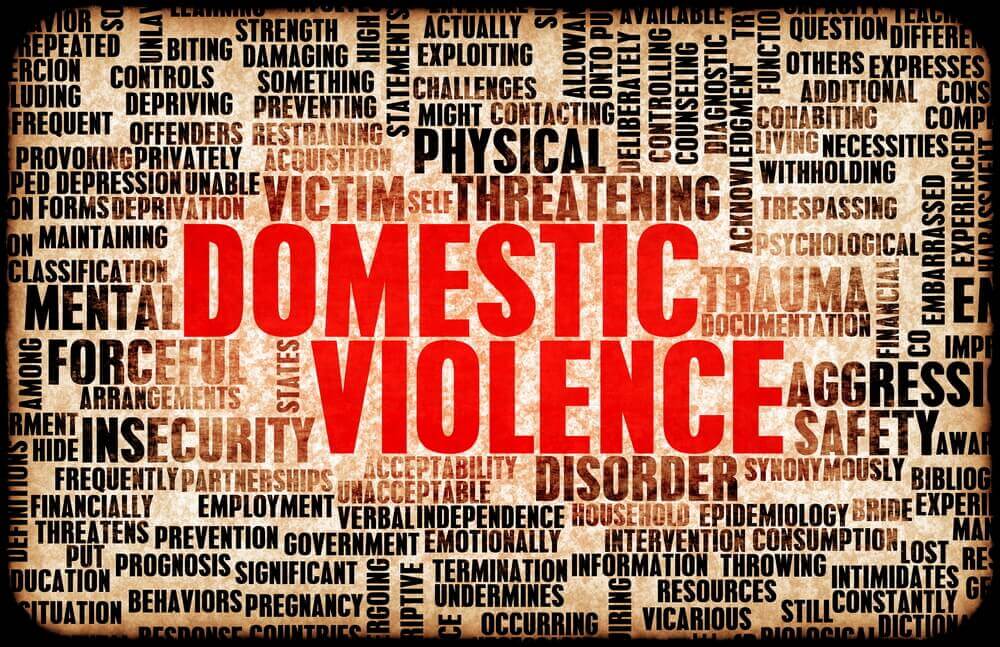Domestic violence in Florida wreaks havoc on its victims. The best way to avoid adding to the suffering and misery it brings is to educate yourself on how the law views these charges.
If you’ve become a victim of domestic violence in Florida, you should know how to report it, what options are available, and how law enforcement and the courts handle the situation. Familiarizing yourself with this important information just might help you break the cycle of violence and escape an abusive relationship.
What is Domestic Violence in Florida?
In Florida, domestic violence is defined as family or household members committing violence against each other. It happens between spouses, ex-spouses, co-parents of a child or a relative related to the individual by blood or marriage.
Domestic violence also happens between individuals who are not related, but currently live together or who once lived together. Common types of criminal charges resulting from domestic violence in Florida include assault, aggravated assault, battery, aggravated battery, sexual assault, sexual battery, stalking, aggravated stalking and kidnapping.
Reporting Domestic Violence
Laws exist in Florida to protect victims who report domestic violence. After you call law enforcement, they may arrest an accused abuser, but only if the officer finds sufficient evidence or witnesses. When an abuser is arrested or charges are filed, the incident becomes public and prosecution from the state attorney’s office must ensue.
What You Should Expect from Law Enforcement
When a law enforcement officer arrives on the scene of domestic violence in Florida, they must fulfill a check list. Most importantly, they must make sure you and others involved have no physical injuries requiring medical treatment. Additionally, they must connect you with local agencies and resources that help victims of domestic violence.
Law enforcement officers also must provide victims with the “Legal Rights and Remedies Notice to Victims” information. This document includes helpful information such as the name of a local domestic violence shelter, instructions on reaching the Department of Children and Families and a statement that explains a victim’s rights.
Victim’s Rights
Victim’s rights provide options for the abused, including:
- Filing a criminal complaint against the abuser.
- Obtaining a restraining order, also called an injunction, to help protect the victim from further violence. The restraining order will legally force the abuser to leave the home. It also prevents him or her from coming near any places the victim lives or works.
- If a history of domestic violence is established, the court can grant the abused custody to any children and require the abuser to pay child support.
- Depending on the situation and the level of available evidence, an arrest by the officer at the scene may occur. However, regardless of an arrest, a police report is filed.
Police Report
The police report includes a description of physical injuries, details about the domestic violence dispute, and any reasons for arresting the accused abuser. It also includes a statement that ensures the victim received a copy of their legal rights and remedies.
The Abuser Is Arrested, Now What?
In the case of an arrest after evaluation by the law enforcement officer, the abuser is held in jail until their first appearance before a judge. After their first appearance, no release occurs until the second hearing. During the second hearing, a release may be made if a temporary injunction is filed. The temporary injunction will be active until deemed otherwise by the court at the final hearing.
If the Abuser is Found Guilty
Every case is different. However, standard punishments exist in Florida for domestic violence. For example, convicted abusers can receive one year of probation. During probation, the accused must participate in a batterer’s intervention program.
In other cases, an abuser may be sentenced to a minimum of five days in the county jail. If the abuser has a history of committing domestic violence, a felony charge and sentence of up to five years in prison becomes an option. Additional repercussions for a felony charge include restrictions on owning firearms and carrying concealed weapons.
Call Craig Vigodsky!
If you or someone you know is facing a domestic violence case, we want to do everything we can to help you through this difficult time. Give us a call, we can get down to the brass tacks of your case!

